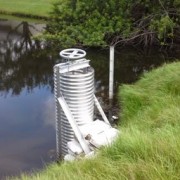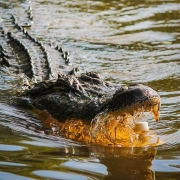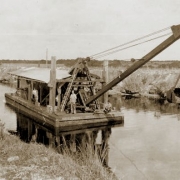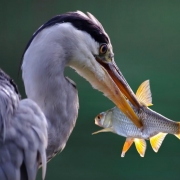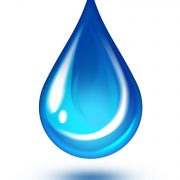Weirs Are Weird But Needed
In coordination with the South Florida Water Management District permit, the Lake Worth Drainage District (LWDD) allows two types of discharge control structures in residential communities and commercial properties – Operable and Non-Operable. The labels Operable and Non-Operable do not pertain to the structure’s ability to provide flood protection, but rather identify the type of structure and the way it is designed to function.
Non-Operable Structures, also known as ‘passive structures’, typically have an overflow weir or a triangular “bleed down” orifice installed at the stormwater pond’s designed water-control elevation. These overflow orifices allow the gravity flow of water through the structure and into drainage canals until the pond water rests at the designed water-control elevation. Given its passive nature, water will flow through the structure virtually any time there is rainfall except during very dry conditions when pond levels are lower than the water-control elevation.
So, why are there Operable Structures? A series of normal rain events can sometimes raise the level of the stormwater pond faster than the Non-Operable Structure can remove the water. The Operable Structure includes the passive flow described above, as well as a vertical slide-gate with an operating mechanism (usually a hand-wheel) that can be manually opened or closed to control the rate of water flow from the pond to drainage canals. The Operable Structure can be opened to manually lower the pond elevation after a rain event or before major weather systems like tropical storms or hurricanes.
It is important to note that the Operable Structure can only be opened with permission from LWDD. Sometimes that permission is granted at the request of an individual community or business. However, more often LWDD will give blanket permission to all communities and businesses based on forecasted weather conditions. In those situations, LWDD will provide notification by email and give a specific time to operate the Operable Structure. Communities and businesses can register designated representatives to receive these notification emails as well as find additional information and guidelines for the operation and maintenance of structures at https://lwddnet.wpengine.com/property-managers-hoa.
LWDD is the only drainage district in the State of Florida that allows Operable Structures. It requires close coordination with local and regional authorities, but we believe it provides flood control benefits to the residents living within the LWDD boundaries.

